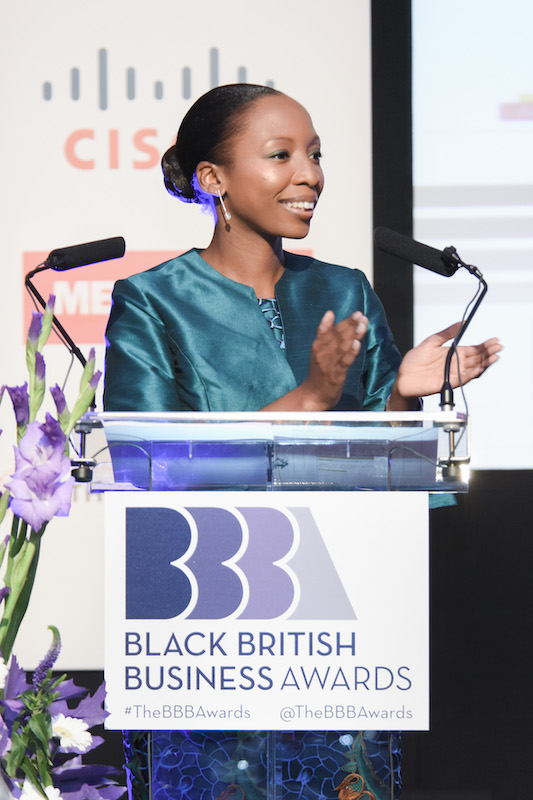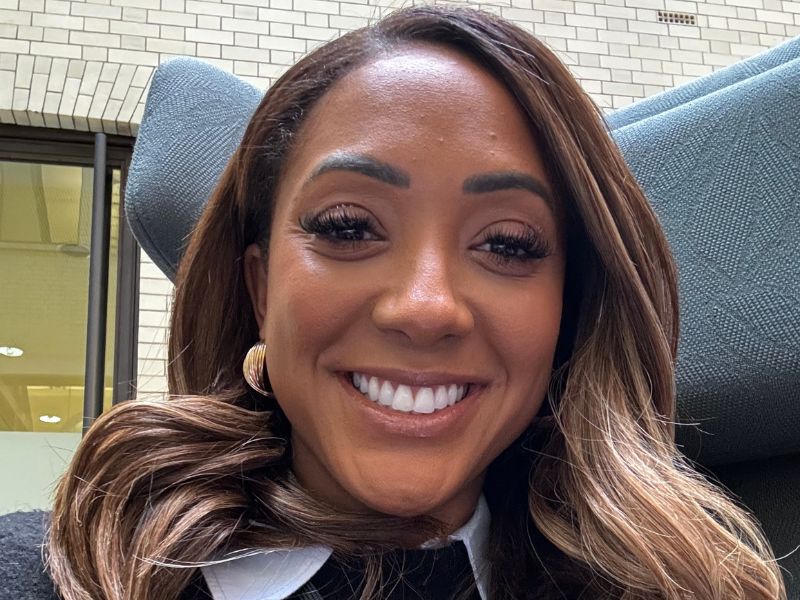Article by Sophie Chandauka, co-founder of the Black British Business Awards
 In this piece I will reflect on the year just gone and make seven predictions for what I think 2021 will hold when it comes to the essential (yet often overlooked) topic of race in the workplace.
In this piece I will reflect on the year just gone and make seven predictions for what I think 2021 will hold when it comes to the essential (yet often overlooked) topic of race in the workplace.
One topic that was on everyone’s minds in 2020 was Covid-19. However, what many people perhaps didn’t give fair time and consideration to, was how the pandemic has (and continues to) disproportionately take the lives of ethnic minority individuals. Data shows that this is due to the over-representation of this group in low paid, precarious, frontline work and to persistent racial biases in the healthcare system. It also comes as little surprise that police powers have been unreasonably and unfairly used to target black and Asian communities during the Coronavirus lockdown.
And another key event of 2020 was the tragic murder of George Floyd on 25th May 2020 which sparked the revival of the #BlackLivesMatter movement across the globe. Here in the UK too, protesters of multi-racial backgrounds marched in solidarity against racism affecting Black individuals. The spotlight on Black lives has exposed further alarming statistics of inequalities across our public services and private institutions.
And without a doubt, the battle we have seen ‘out there’ is mirrored ‘in here’ in our organisations too. We see it in the form of slower promotion and progression rates, lower inclusion and belonging scores, and indeed, under-representation from middle management to senior leadership of ethnic minority professionals.
And sadly, the data backs this up too.
A 2020 YouGov survey found that 84 per cent of Britain’s BAME citizens think the UK is “very” or “somewhat” racist; a TUC study in 2019 found that over 70 per cent of ethnic minority workers have experienced racial harassment at work; while an Oxford analysis in the same year discovered that job applicants with ethnic minority-sounding names needed to make 60 per cent more applications to get the same number of call-backs as applications with white British ones.
An independent government-backed report released in 2017, The Parker Review, identified a clear challenge for Britain’s FTSE 100 companies; appoint at least one director from an ethnic minority background by the end of 2021. A progress report in 2020, however, revealed 59 per cent of companies had still yet to appoint a single ethnic minority board member.
We know that it is entirely possible for businesses across the UK to reach a consensus and shift the dial meaningfully, not least because of the excellent work that has been done over the years to shift perception around women in the boardroom. Similar government initiatives to increase female representation in the boardroom have done well, though there is of course always more to do.
However, when it comes to race, what we have seen over the past seven years is an articulation of good intentions, businesses pledging support, followed by government-backed targets, only to end up with statistics that barely move the needle. Or worse still slide back. It seems that businesses are merely paying lip-service to the discussion and in some cases overstating the scope of what they are doing on racial diversity.
I truly hope 2021 brings far more than mere pledges alone, and that instead, this year can be the year of real action. With this in mind, here are seven predictions regarding race in the workplace for 2021.
- Shareholder scrutiny and activism with regards to race equity will increase;
- Regulators and systemically important public institutions will set clear expectations on Boards and C-suite;
- Companies who fail to deliver on commitments made in May 2020 will face reputational damage;
- The British Government will push for ethnicity pay gap reporting measures;
- The Biden-Harris administration will lead from the front and drive global conversations about intersectionality and people of colour;
- Appointments of visible minorities at Board and C-Suite in FTSE 100 will increase;
- The life science, health sciences and biotech sectors will focus on the ethnic minority agenda in a more systematic way.
To conclude, big business has not reached consensus on what action is needed to deal with the structural issues that create barriers to the progression and promotion of minority businesspeople. But to respond sensitively and effectively to global and contextual inequalities, organisations must be prepared to use 2021 to hold up the mirror and tackle the systemic and cultural barriers that still obscure the everyday experiences of, and impede the progression of, ethnic minority talent.
Because pledges alone won’t change behaviour, only action will do that.
About the author
 Sophie is Global COO of Morgan Stanley’s Shared Services and Banking Operations. Prior to that, she was EMEA Chief Administrative Officer (CAO) of Morgan Stanley’s Legal and Compliance Division.
Sophie is Global COO of Morgan Stanley’s Shared Services and Banking Operations. Prior to that, she was EMEA Chief Administrative Officer (CAO) of Morgan Stanley’s Legal and Compliance Division.
Previously, as Head of Group Treasury (Legal) at Virgin Money, she led execution of strategic mergers and acquisitions (M&A) and corporate finance activity, including the acquisition of Northern Rock, the flotation of Virgin Money and other deals in excess of £13billion. Prior to this, she was a Senior Associate at global firm Baker McKenzie, advising clients such as Nike, The Body Shop and Macquarie Bank.
Sophie is an international speaker at industry conferences and recipient of many business awards. She has featured in publications including Management Today, Brummell, the Financial Times and Sunday Times. She is a Rotary International Paul Harris Fellow and has served on several boards including Sentebale, which was founded by Prince Harry to support children affected by HIV/AIDS in Africa. Sophie is the Strategic Advisor to Morgan Stanley’s African and Caribbean Business Alliance. She is a member of The Executive Leadership Council (ELC), the preeminent African American membership organisation committed to increasing the number of black executives in c-suites on corporate boards. She is an Ambassador of the 30% Club and co-leads the US Chapter.
WeAreTheCity covers the latest female centric news stories from around the world, focusing on women in business, careers and current affairs. You can find all the latest gender news here.
Don’t forget, you can also follow us via our social media channels for the latest up-to-date gender news. Click to follow us on Twitter, Facebook, Instagram, and YouTube.








